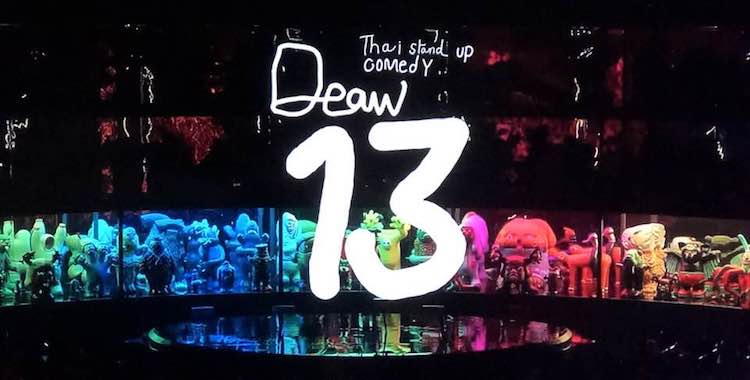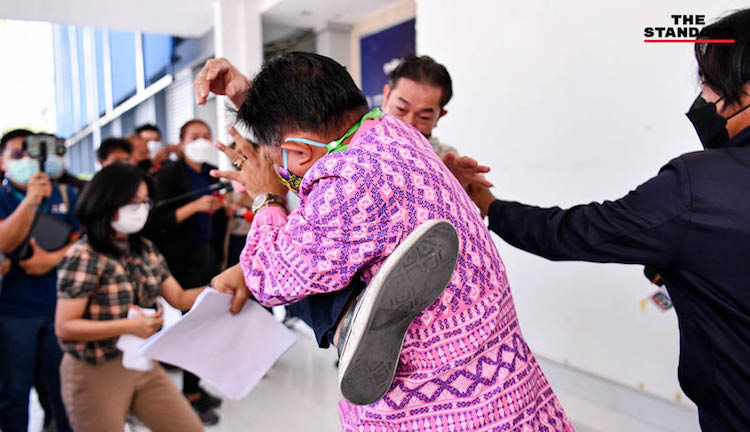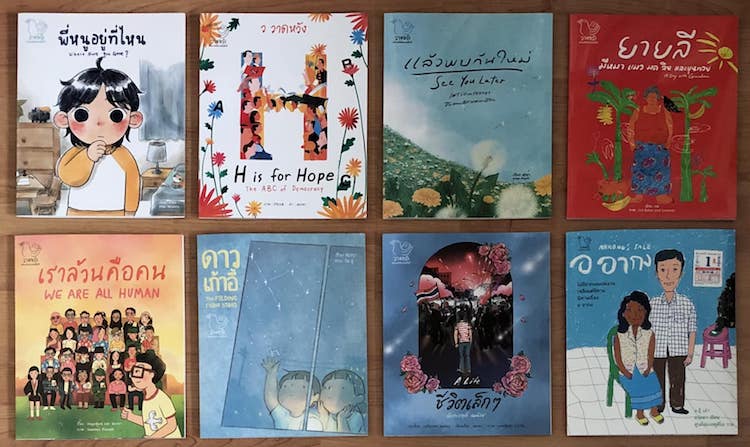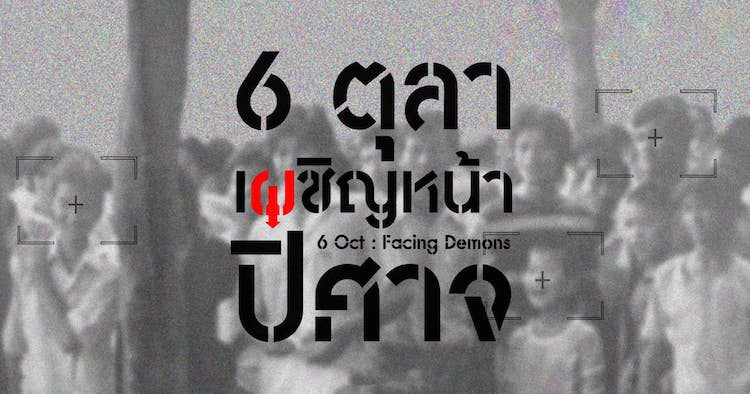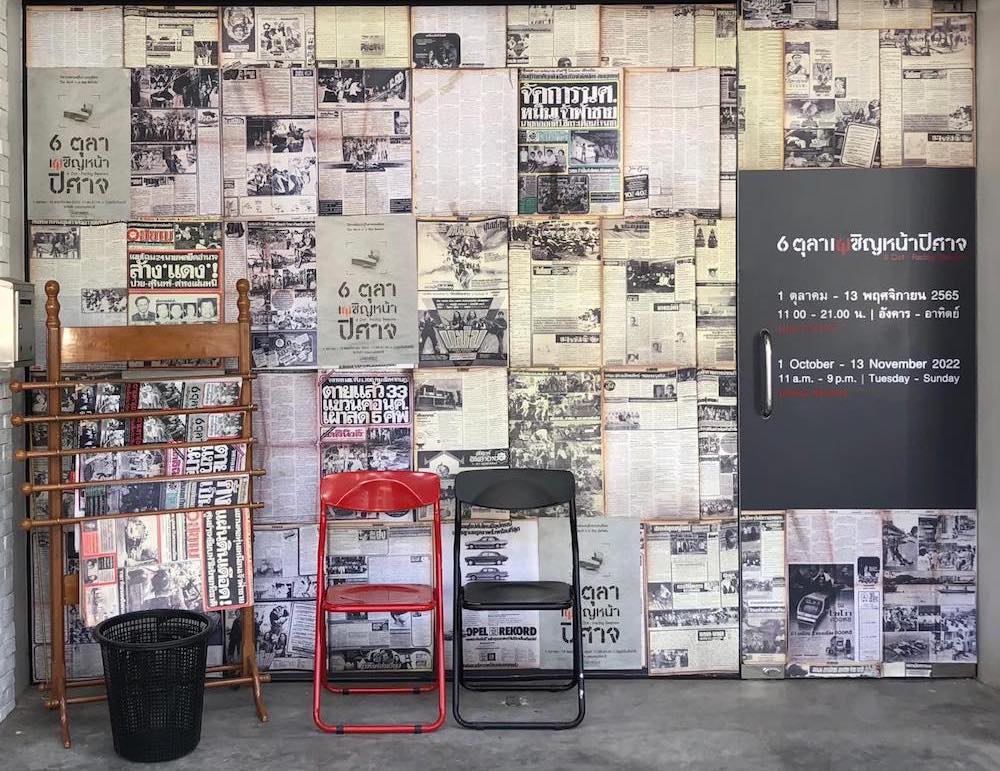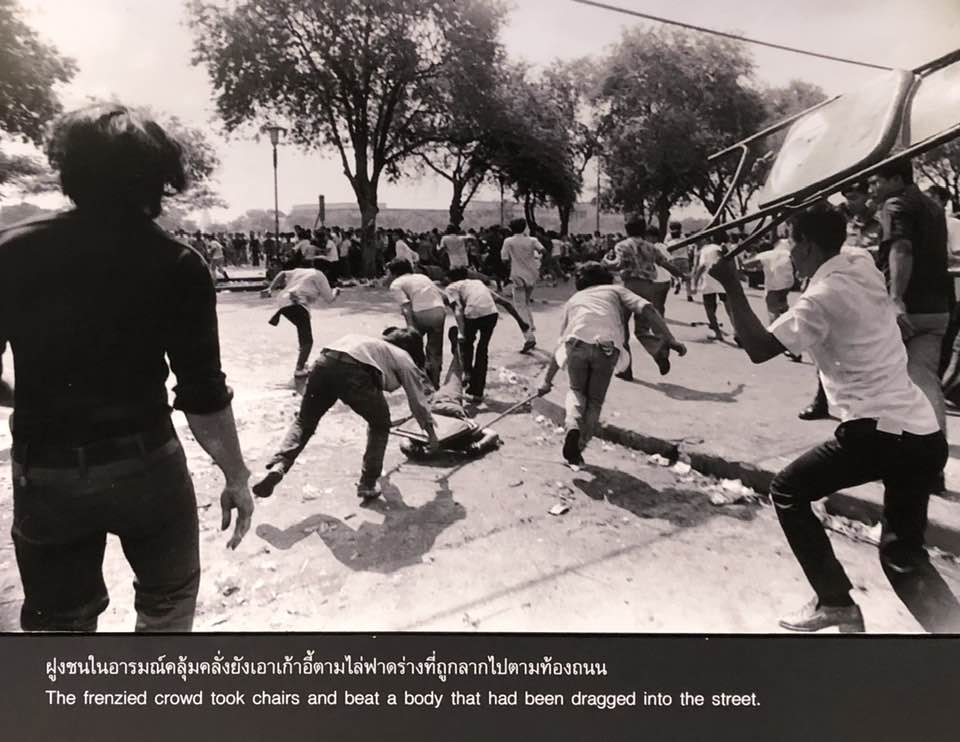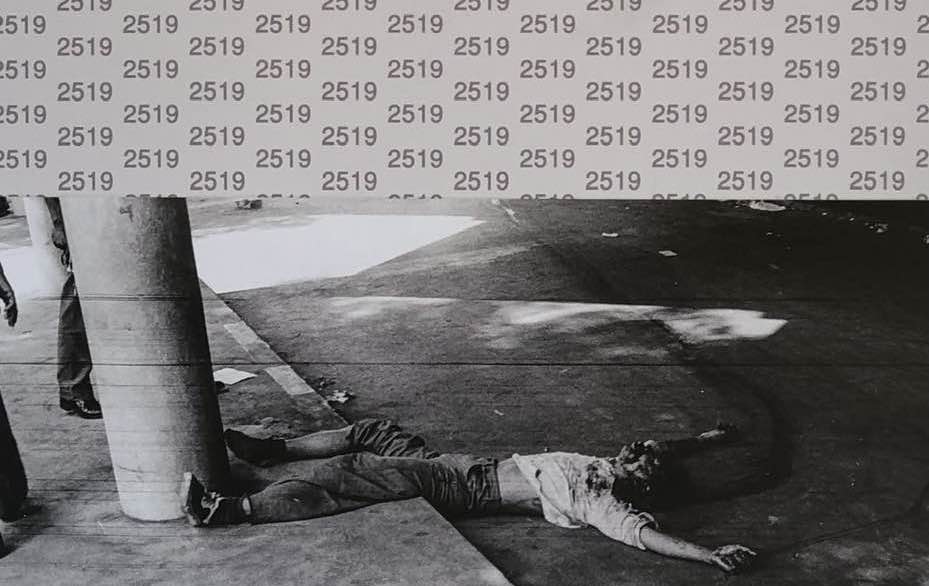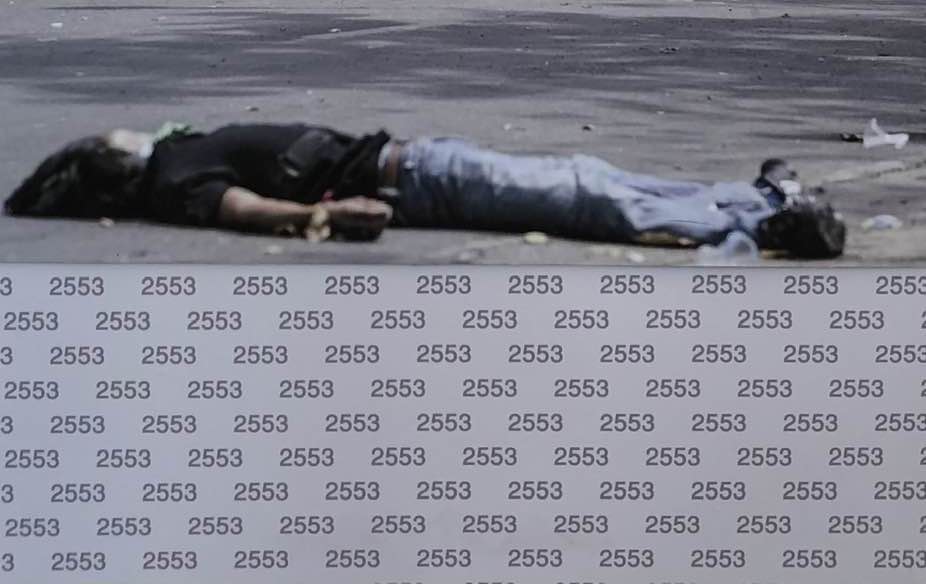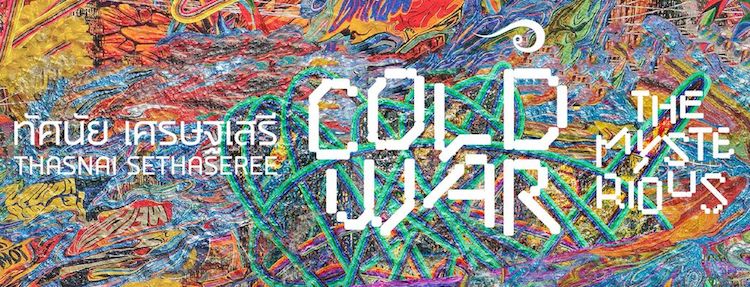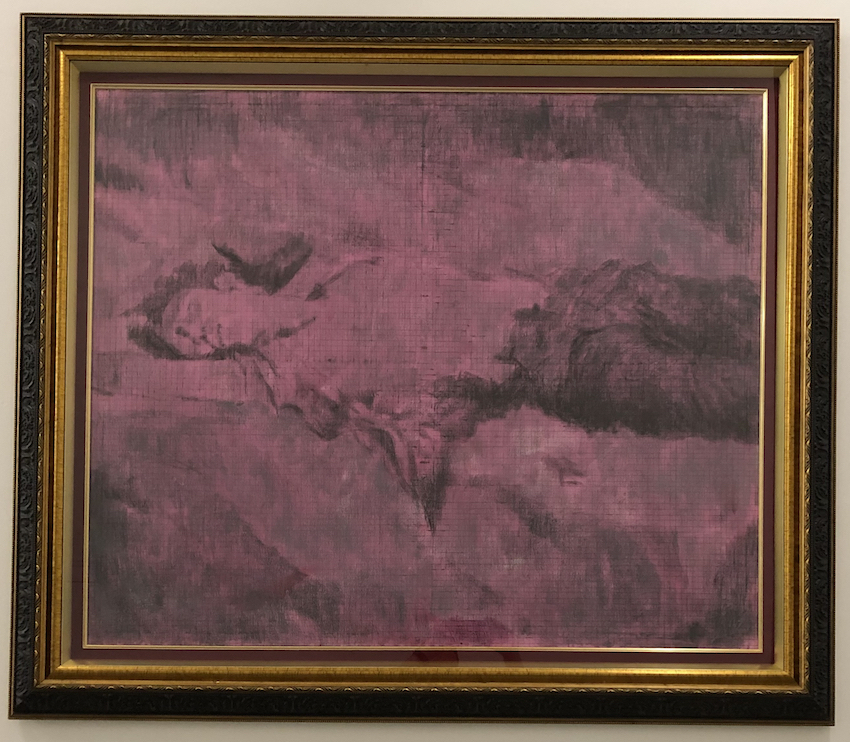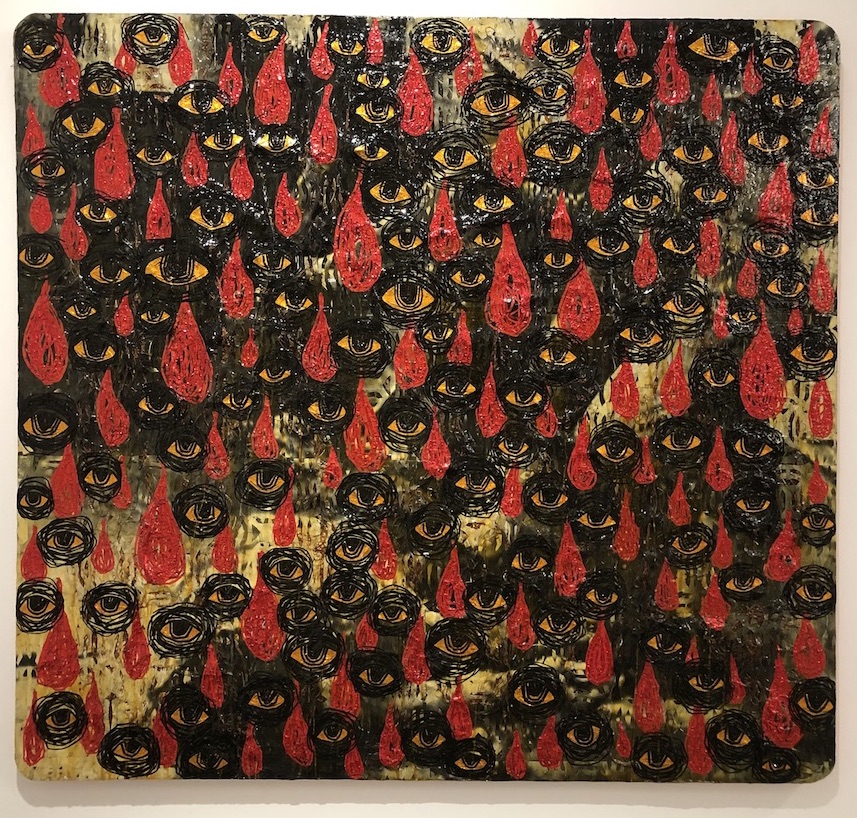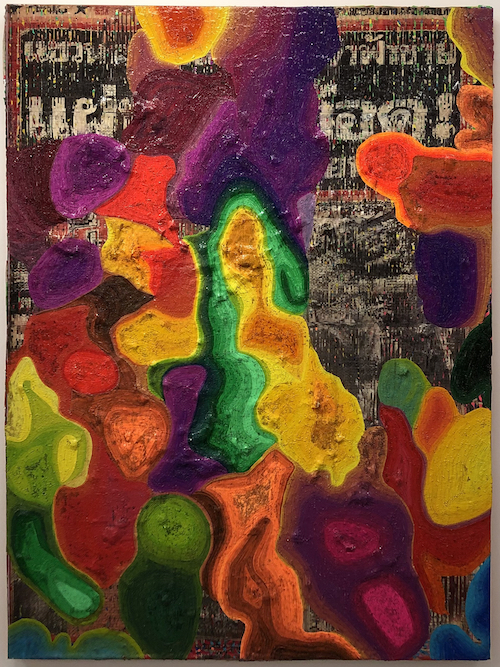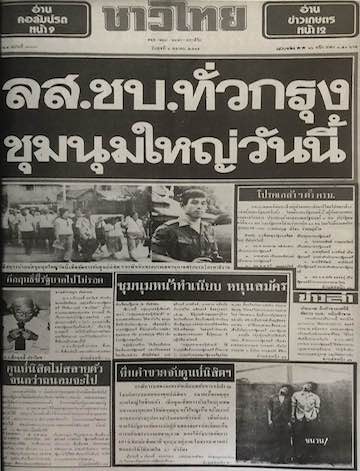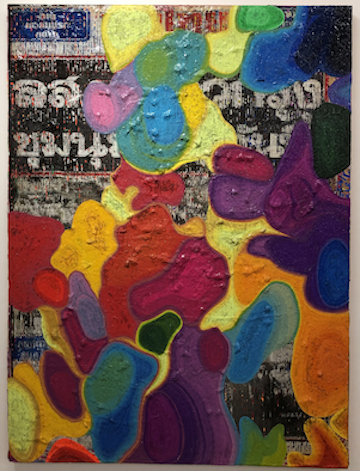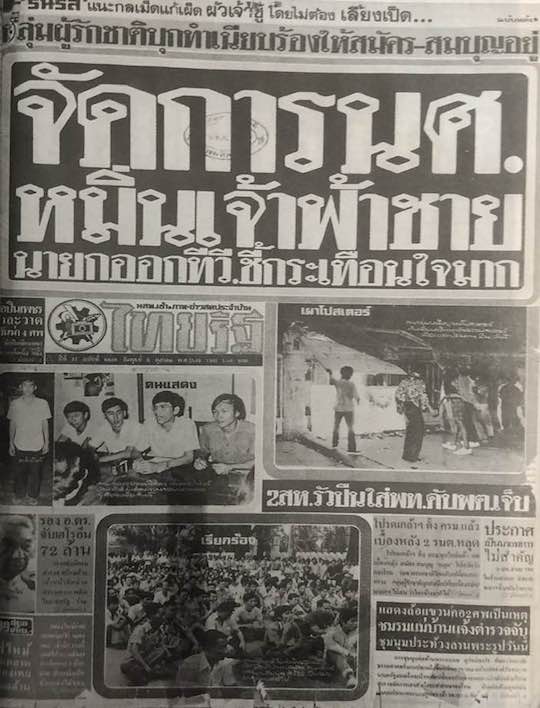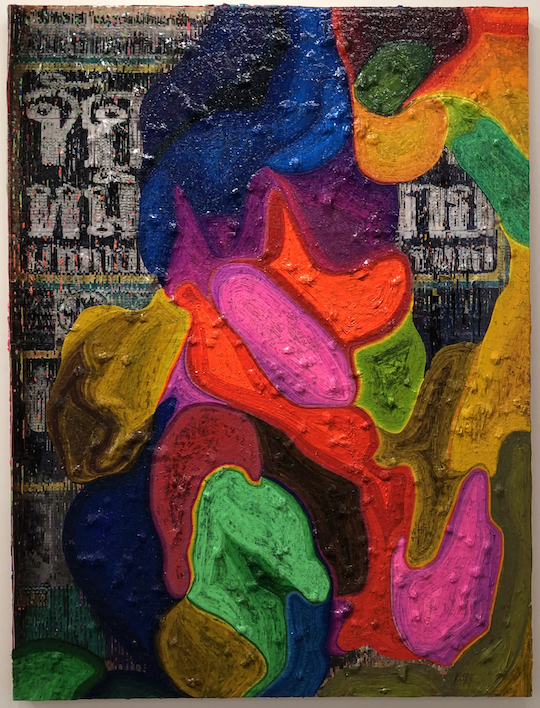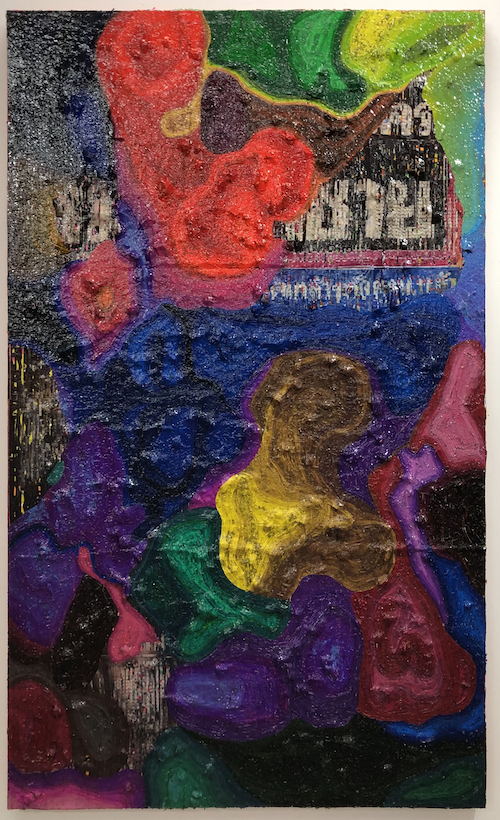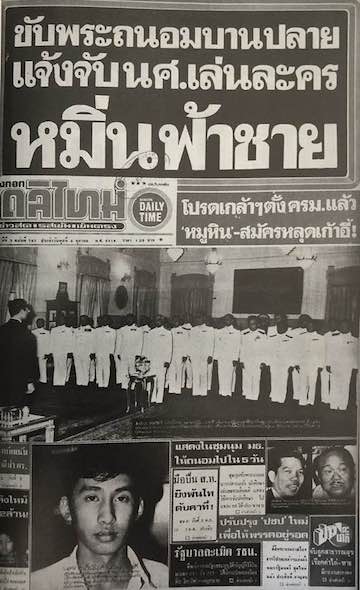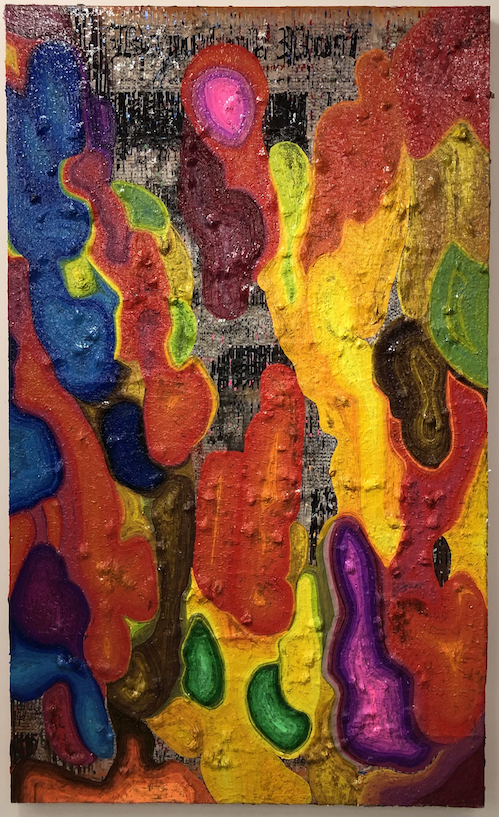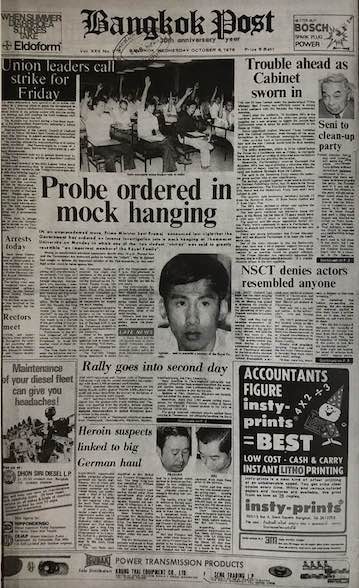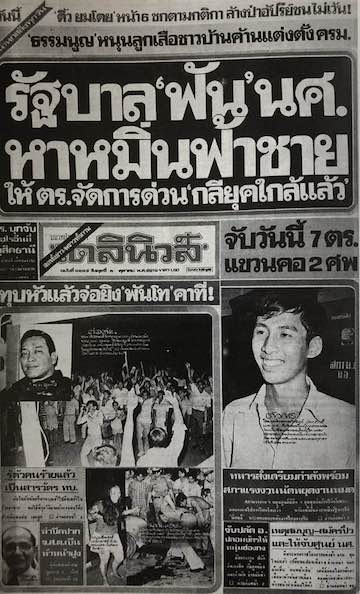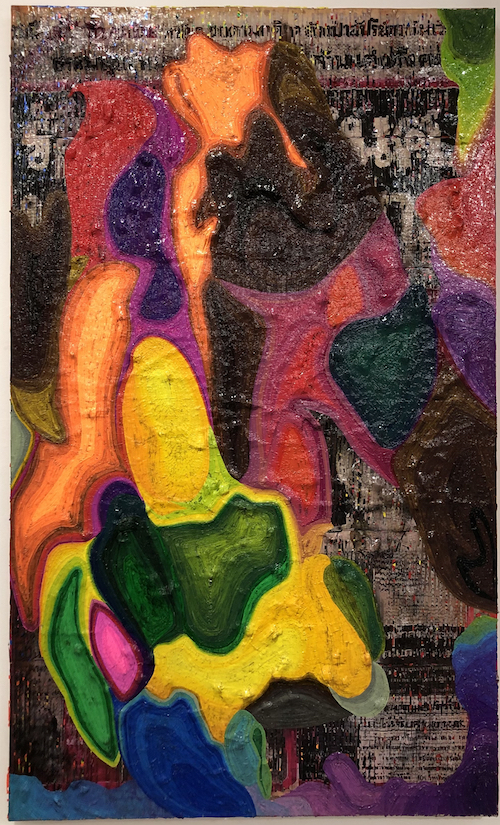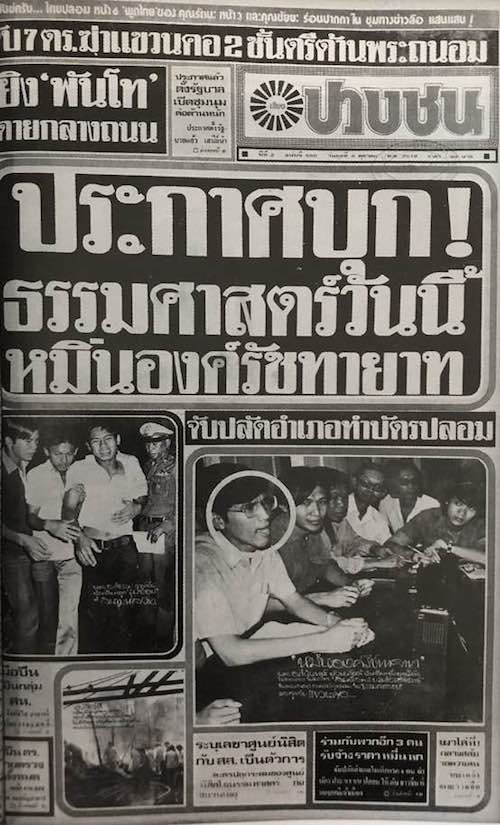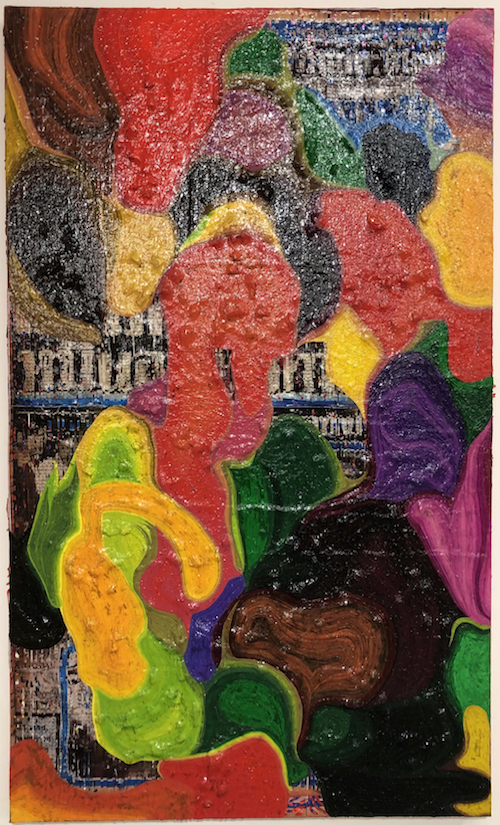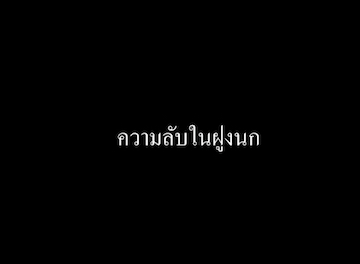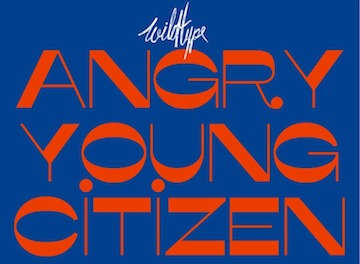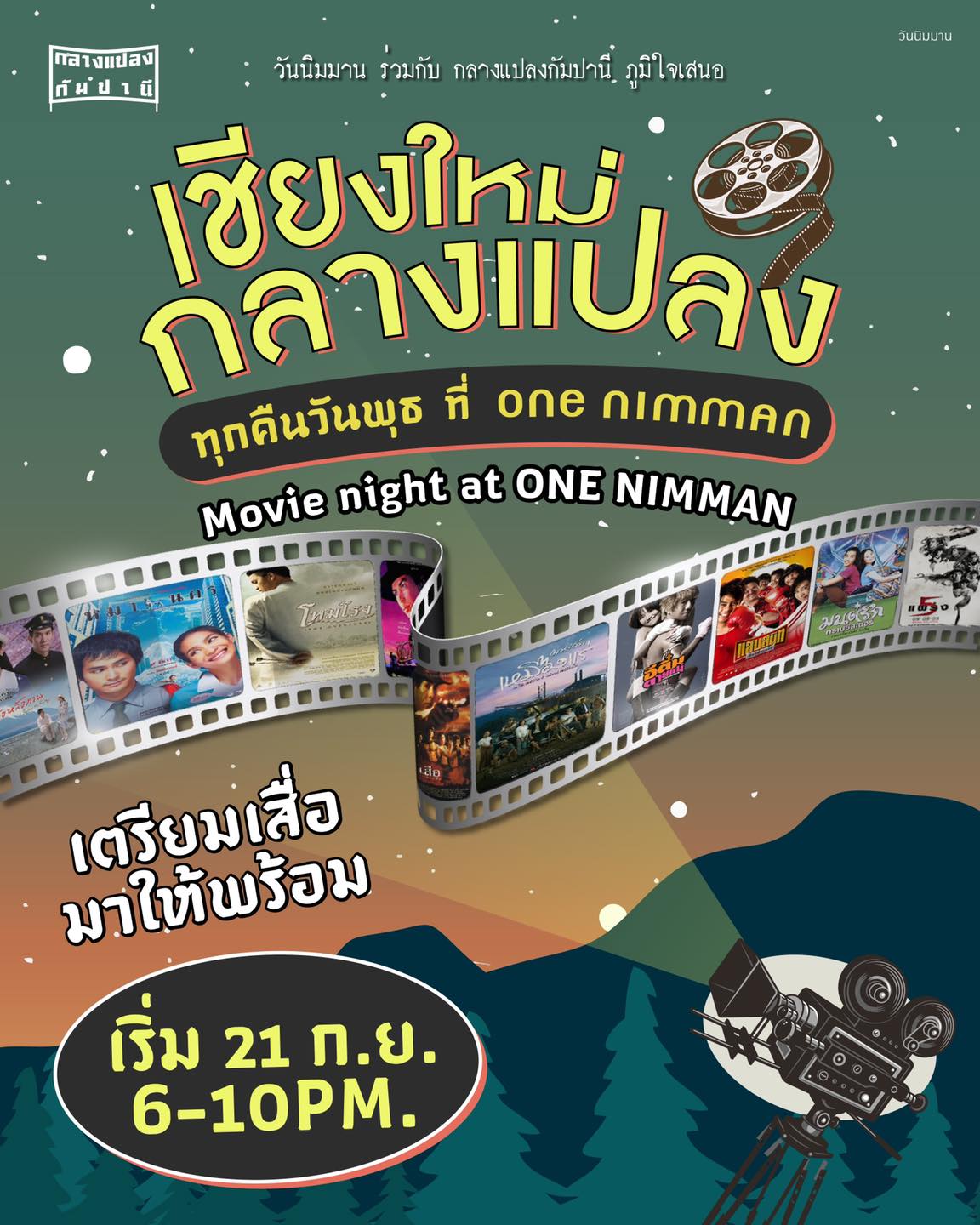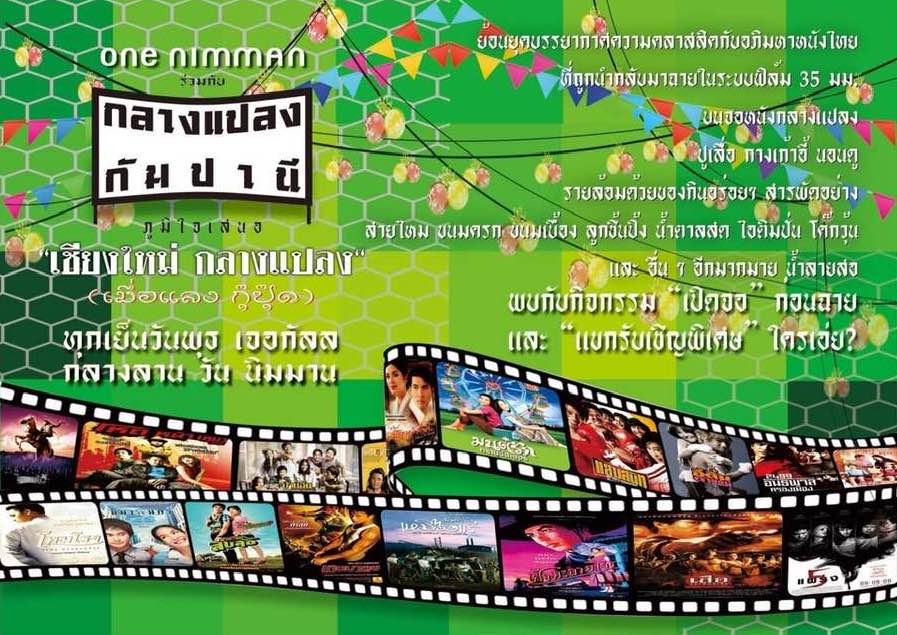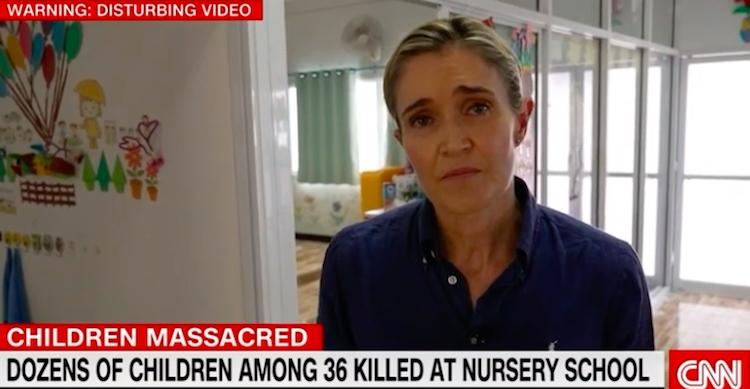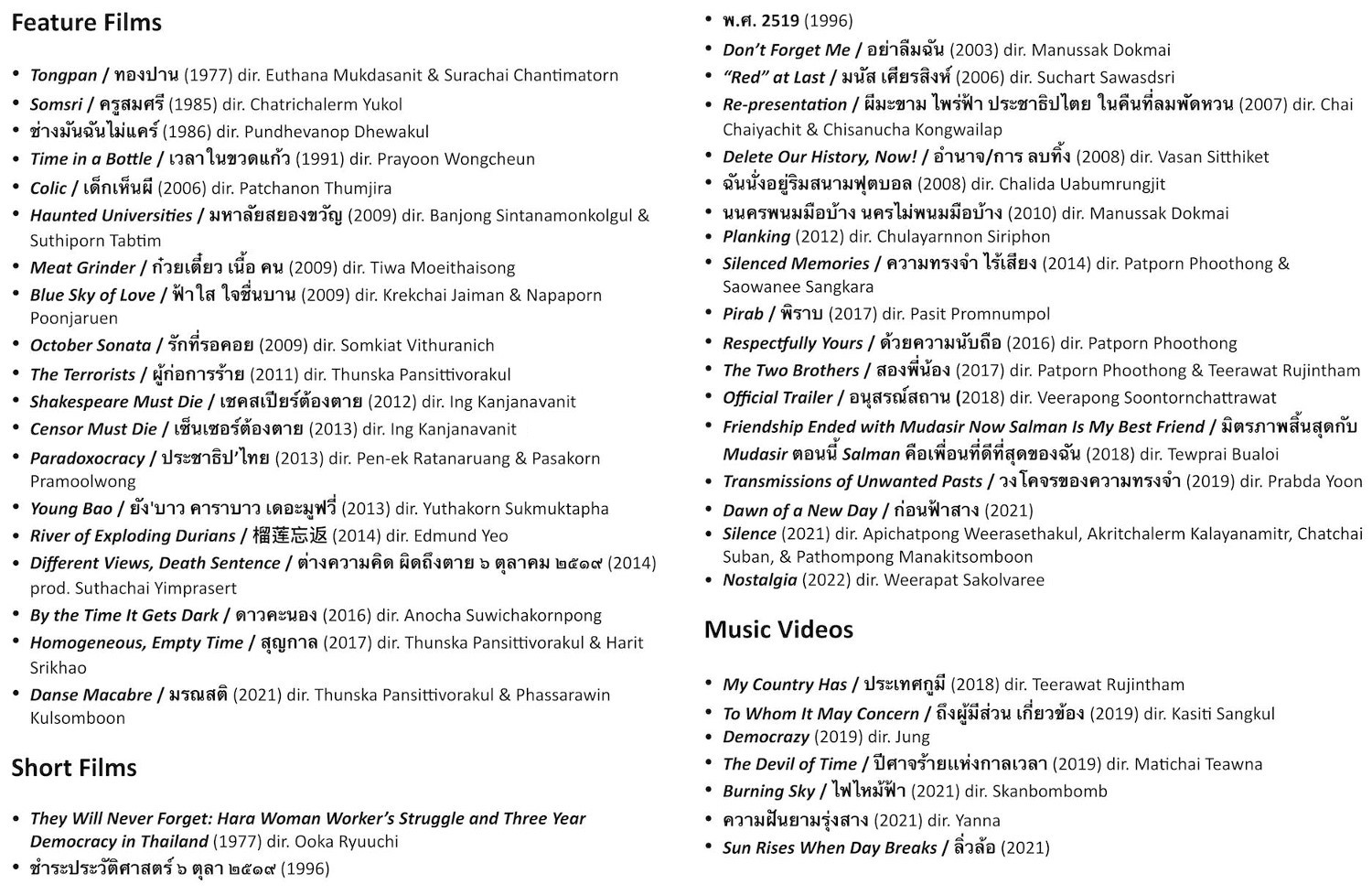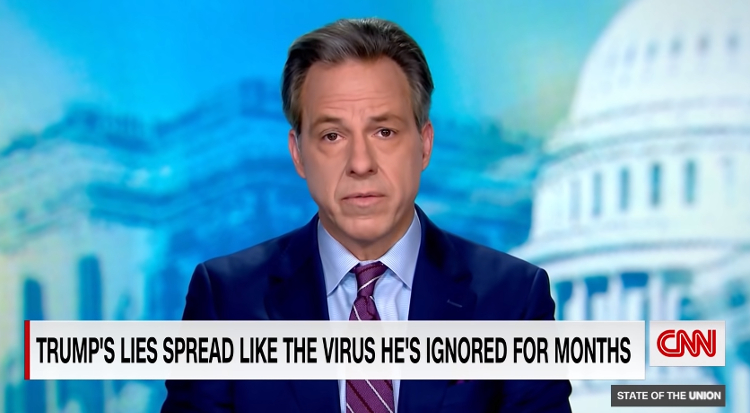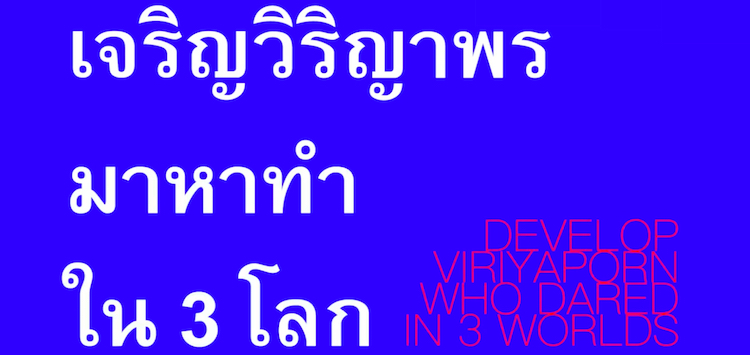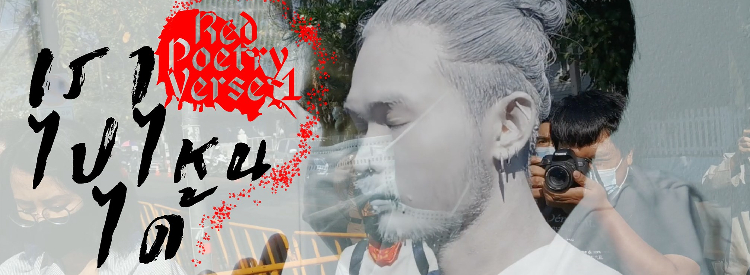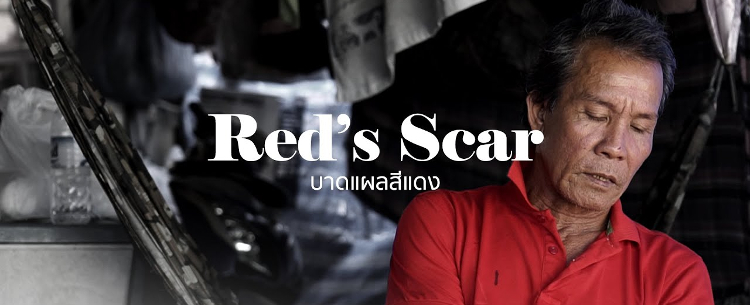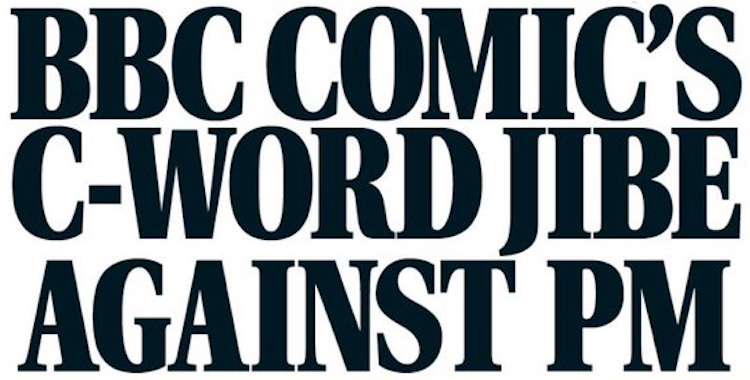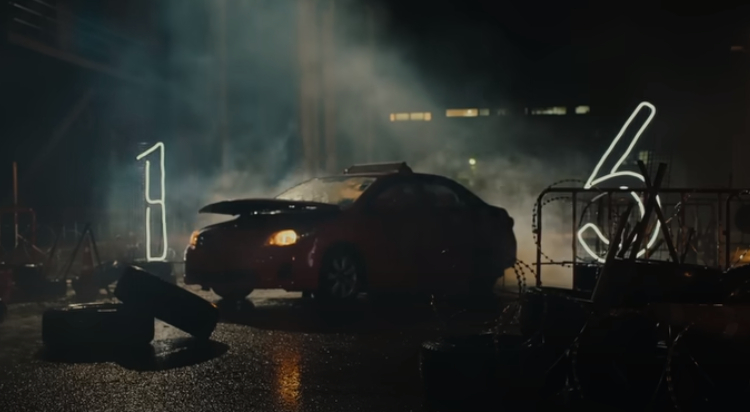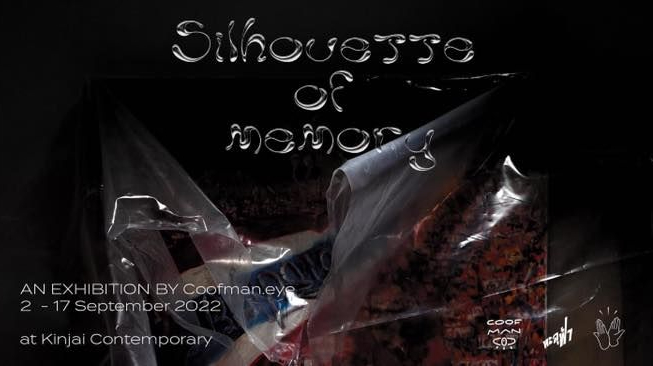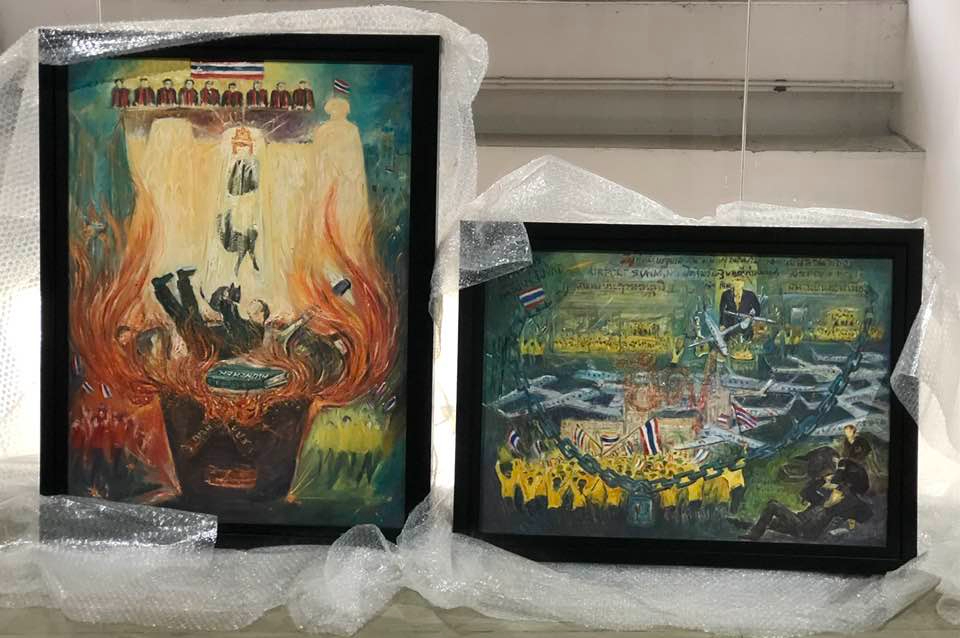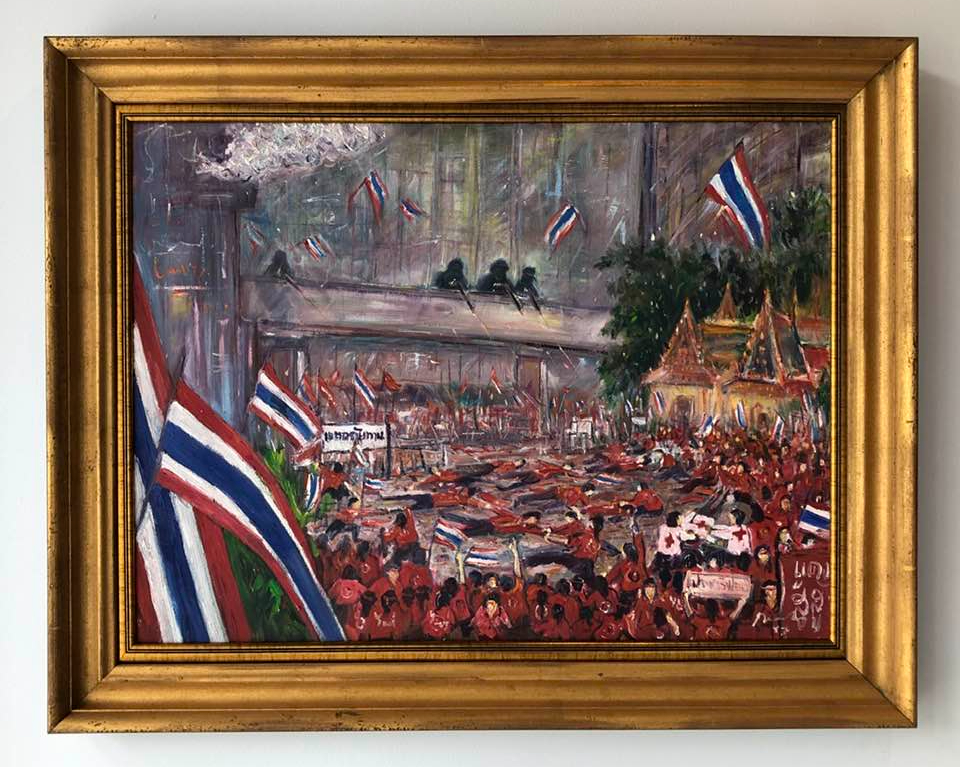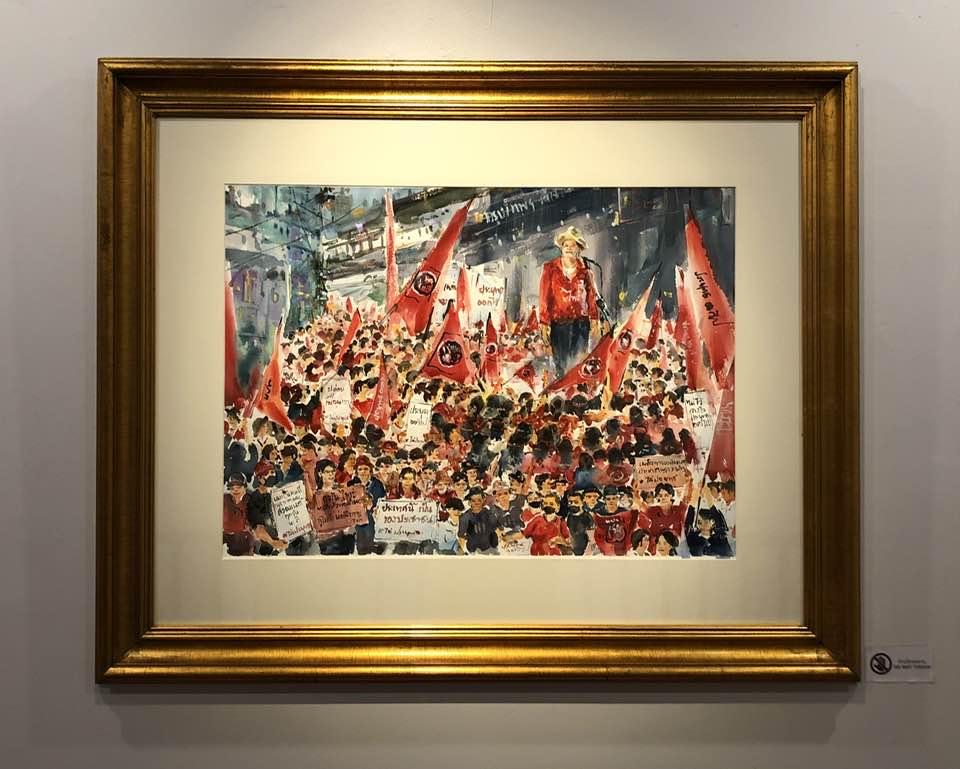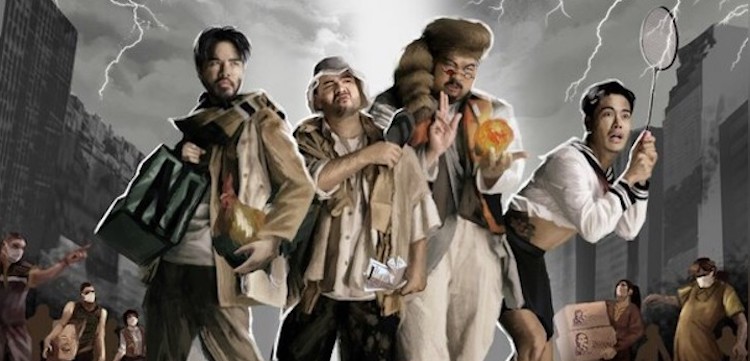
Charges against five musicians were filed with Thai police on the same day, 27th September. Sonthiya Sawasdee, a former MP from the pro-military Palang Pracharath Party, accused four singers of violating the Computer Crime Act after videos of their concert were uploaded online. And the royalist King Protection Group filed a lèse-majesté charge against rapper P9D in relation to one of his songs.
Pramote Prathan (known as Oat), Pongkool Suebsung (Pop), Pongsak Rattanaphong (Aof), and Thanakrit Panitchwit (Wan) performed together at the I Will Survive (4 แยกปากหวาน ตอน) concert on 17th September at Royal Paragon Hall in Bangkok. Coincidentally, this was the same venue at which comedian Udom Taephanich held his Deaw 13 (เดี่ยว 13) show, which was also the subject of a recent police complaint.
Sonthiya accused the four singers of publishing inaccurate or misleading information online, which would be a violation of the Computer Crime Act. He cited lyrics such as “ประเทศเรากำลังจะพัง” (‘our country is about to collapse’), “แปดปี ไม่มีความหมาย” (‘eight pointless years’, describing Prime Minister Prayut Chan-o-cha’s time in office), and “นาฬิกายังไม่คืน” (‘the watches have not been returned’, a reference to deputy PM Prawit Wongsuwan’s claim that his luxury watches were merely borrowed from a friend).
On the same day, the King Protection Group filed a police complaint against P9D, alleging that his song Kuay Rai A (ควยไรอะ) violated the lèse-majesté law. The pressure group intentionally avoided naming the track, hoping to prevent the ‘Streisand effect’ whereby censorship paradoxically draws more attention to the forbidden material. This was unnecessary, though, as the rapper—mindful of the severity of lèse-majesté sentences—has since deleted it from all social media and online music sites.
Pramote Prathan (known as Oat), Pongkool Suebsung (Pop), Pongsak Rattanaphong (Aof), and Thanakrit Panitchwit (Wan) performed together at the I Will Survive (4 แยกปากหวาน ตอน) concert on 17th September at Royal Paragon Hall in Bangkok. Coincidentally, this was the same venue at which comedian Udom Taephanich held his Deaw 13 (เดี่ยว 13) show, which was also the subject of a recent police complaint.
Sonthiya accused the four singers of publishing inaccurate or misleading information online, which would be a violation of the Computer Crime Act. He cited lyrics such as “ประเทศเรากำลังจะพัง” (‘our country is about to collapse’), “แปดปี ไม่มีความหมาย” (‘eight pointless years’, describing Prime Minister Prayut Chan-o-cha’s time in office), and “นาฬิกายังไม่คืน” (‘the watches have not been returned’, a reference to deputy PM Prawit Wongsuwan’s claim that his luxury watches were merely borrowed from a friend).
On the same day, the King Protection Group filed a police complaint against P9D, alleging that his song Kuay Rai A (ควยไรอะ) violated the lèse-majesté law. The pressure group intentionally avoided naming the track, hoping to prevent the ‘Streisand effect’ whereby censorship paradoxically draws more attention to the forbidden material. This was unnecessary, though, as the rapper—mindful of the severity of lèse-majesté sentences—has since deleted it from all social media and online music sites.

